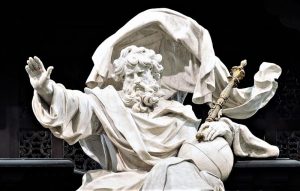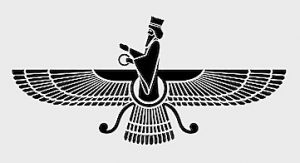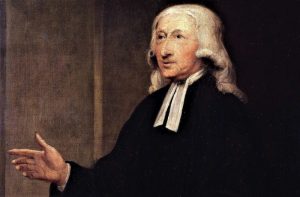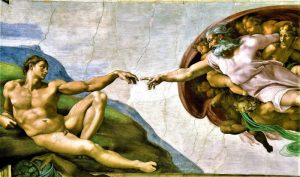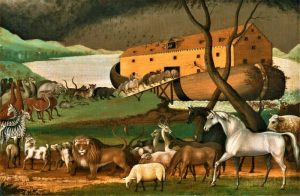Hinduism
Hinduism is the religion professed and practiced by most people living in India and Nepal. It also occurs among significant populations outside the subcontinent and has more than 900 million followers worldwide. Hinduism can be said to be the world's oldest living religion, or at least the elements within it go back many thousands of years. Unlike most other religions, Hinduism has no single founder, no single script, no common set of teachings. Throughout its long history, a large number of key figures have emerged who teach different philosophies and write numerous sacred books. For these reasons, writers often refer to Hinduism as a way of life or as a religious family rather than as a single religion.
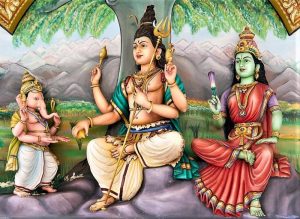
- Type of religion: Polytheistic or monotheistic
- Sacred Books: Vedas (Rig-Veda, Yajur-Veda, Sama-Veda , Atharva-Veda)
- Origin: India
- Deities: Shiva, Ganesha, Vishnu, Kali, Rama, Durga
What is Hinduism?
Hinduism is one of the oldest religions in the world and one of the most complex because they have different gods, beliefs and sects. It is one of the largest and is mainly located in India and Nepal, although it has spread to countries around the world.
History of Hinduism
The word Hinduism comes from the Hindu Persian language, which was the way the Persians pronounced the name of the Sindhu River. Hinduism has its origin in the years 3000 and 2000 before Christ. It has its origin when, in India, there was a mixture of religious beliefs. It began with the belief that gods were elements found in nature. Sometime later, the deity called “brahman” appeared. Time before Jesus Christ was born, a Hindu scripture called Bhagavad Gita arose, giving rise to gods’ veneration as the only means to achieve salvation. Hinduism was then divided into two different currents: one that focused on all things, and another that focused on the dedication of life to the gods.
Founder
Hinduism as a religion emerged in India around 1750 B.C. There are no data on a single founder, or any prophet of the religion or an institutional structure to protect it. It is considered that the Aryan peoples who invaded India brought in their culture and with it, the first gods.
Characteristics of Hinduism
Its main characteristics are:
- It is a native Indian religion, full of religiousness and cultural expressions.
- They have a lot of rites, thoughts and different attitudes regarding religion.
- They believe deeply in reincarnation.
- The absolute being or divinity can be expressed through different manifestations.
- They practice the law of cause and effect.
- They believe in karma and refer to it as every action in life has an effect.
- They believe in dharma, responsibility, and obligations acquired in life.
- The essential being is known by the name of Atman.
Symbols of Hinduism
- Om or Aum: It is the symbol most recognized worldwide and its sound is used in meditation. It is the first word of a prayer and symbolizes the universe and reality. It represents the three aspects of God: the Brahma, the Vishny and the Shiva.
- The Swastika: It is a sign of luck and fortune. This cross variation was present in ancient Hinduism and is used to represent honesty, truth, purity and stability.
- Sri Yantra: It has nine intertwined triangles that radiate from a central point. Of the nine, the four triangles in a vertical position represent the masculine side or Shiva; while the five inverted triangles represent the feminine or the Shakti.
- Tilaka: Symbol normally placed on the forehead of a Hindu devotee.
- Rudraksha: A tree whose blue seeds are said to represent the tears of Shiva, the Destroyer.
- Lotus: A plant that represents creation and is used to symbolize Vishnu, Brahma and Lakshmi.
Gods
- Brahma, the Creator: He is the first divinity of Hinduism.
- Vishnu, the Preserver: Represents order, peace, and love.
- Shiva, the Destroyer: Symbolizes the other side of the universe with respect to Vishnu, that is, death and war.
- Lakshmi, Fortune: It is a goddess of fortune and beauty, highly revered in homes and businesses.
- Krishna, dweller of hearts: He is endowed with love and has the power to destroy pain and sin.
- Ganesha, the god of intelligence.
Rites
One of the main rites takes place in the temples, where the priests are in charge of taking every day offering ceremonies. The birth and the first time that children are fed with solids is very important. The rite of the first haircut in children and purification after the arrival of menstruation. They have rites for marriage and blessing for pregnant women, so that they can have male children. They have altars or domestic temples in a place of the houses that has been consecrated for prayer. They usually light an oil lamp and make offerings of light and incense to the gods. The base of the rites are the offerings.
Sacred book
The four oldest texts of Indian literature are known by the name of Vedas. The RigVeda consists of 1,028 hymns dedicated to a pantheon of gods. Two other Veda were added to the Rig-Veda, the Yajur-Veda or the book of sacrifice and the Sama-Veda that contains the hymns. The fourth book, the Atharva-Veda which is a collection of magic spells. The Veda are considered revealed norms and cannot be altered even in one syllable.
Leader
Hinduism does not have a leader in common, as the peoples who practice it worship and venerate a large number of different gods.
Representatives
Some of the main representatives are:
- Patanjali: Founder of one of the six Darshana: Yoga based on Samkhya.
- Sankara: Main representative of the advaita-vedanta in his time (A.D. 788-820), which was seen as an incarnation of Siva.
- Swami Ramalinga: Described the science of immortality in his philosophy known as The Perfect Path to God.
- Ramana Maharisi: One of the highest representatives of the advaita-vedanta of modern India.
- Shivananda: Master of spirituality.
Countries where Hinduism is practiced
- Bali, Nepal, India.
- Bangladesh, Bhutan, Pakistan, Guyana, Singapore, Sri Lanka.
- Saudi Arabia
- Burma
- Costa Rica
- United States
- Indonesia
- Malaysia
- Mexico
- Panama
- United Kingdom
How to cite this article?
Briceño V., Gabriela. (2019). Hinduism. Recovered on 23 February, 2024, de Euston96: https://www.euston96.com/en/hinduism/




